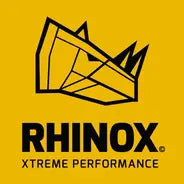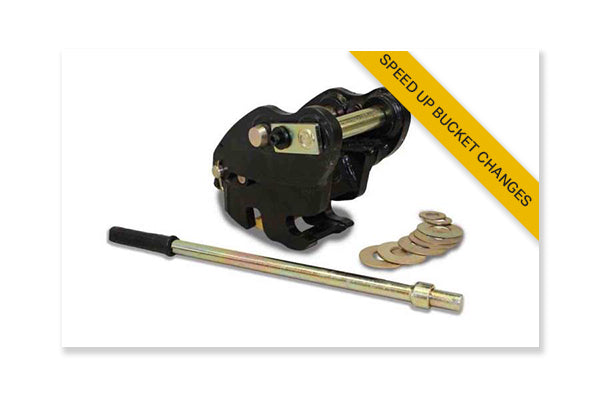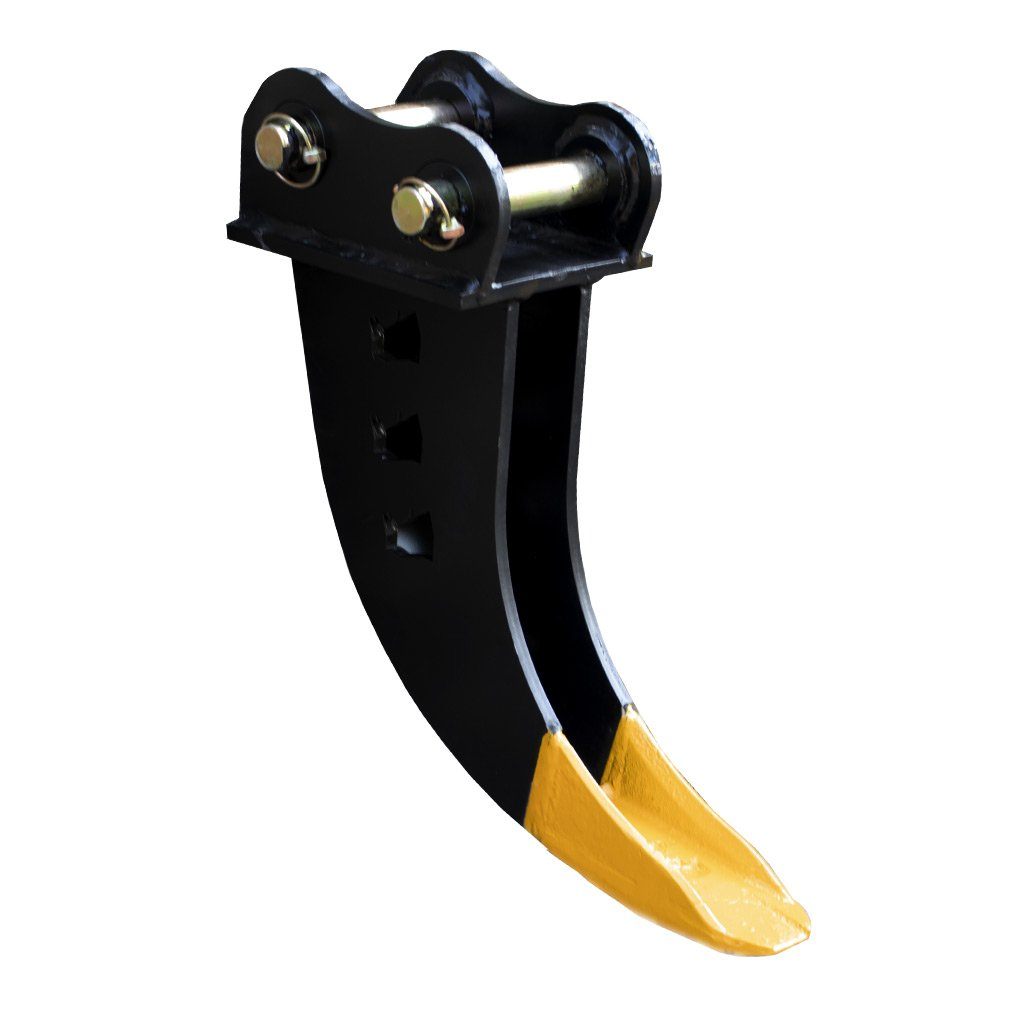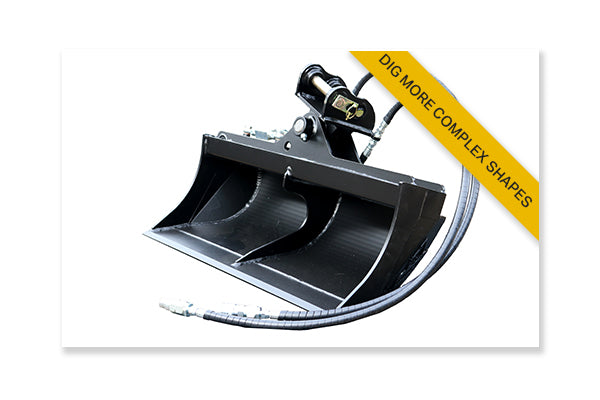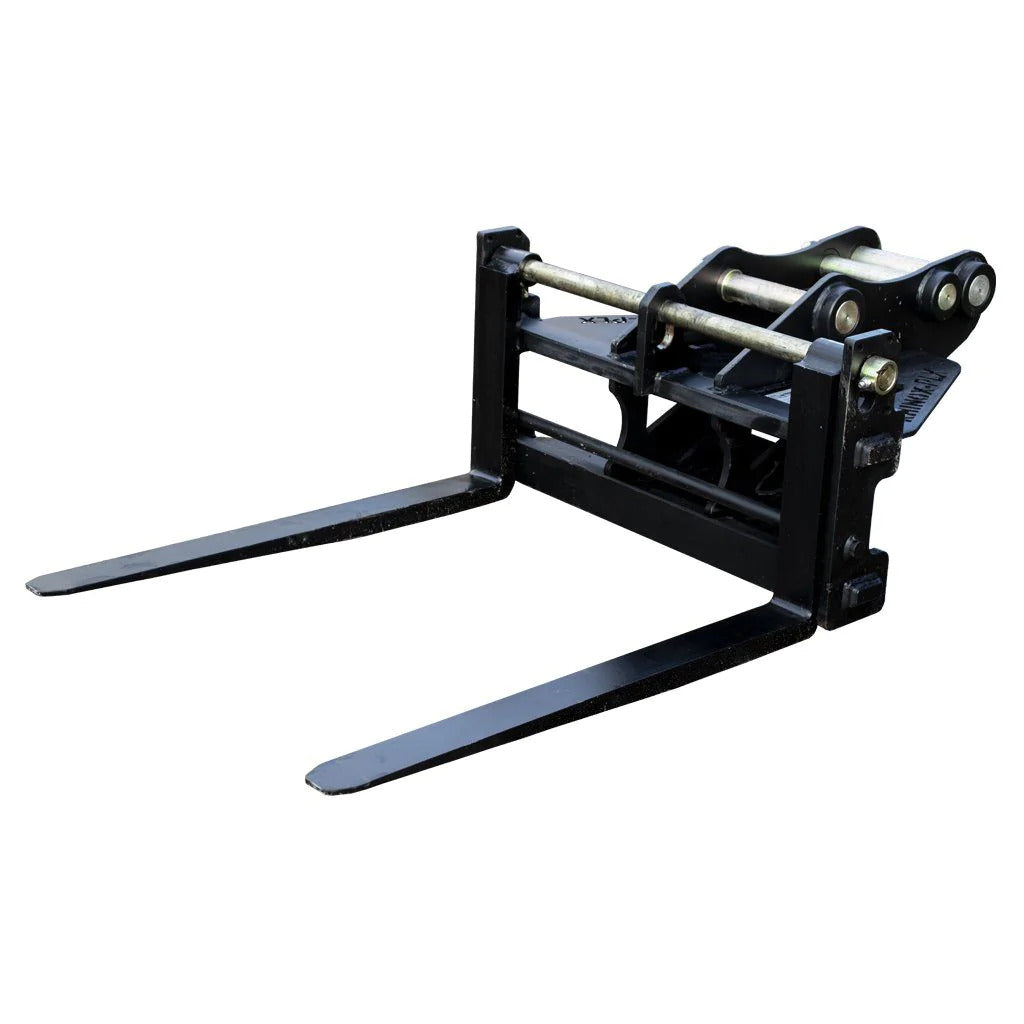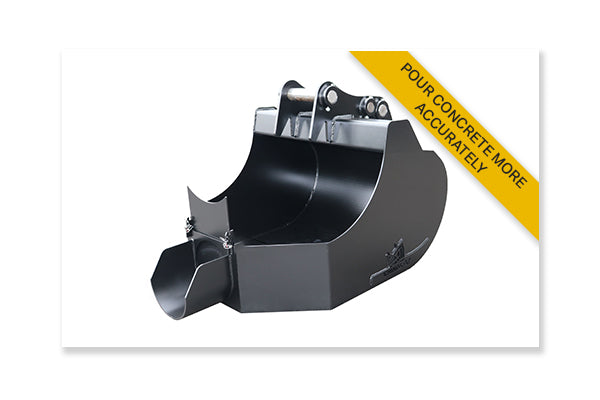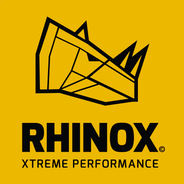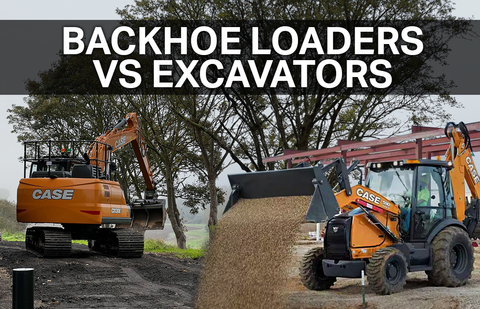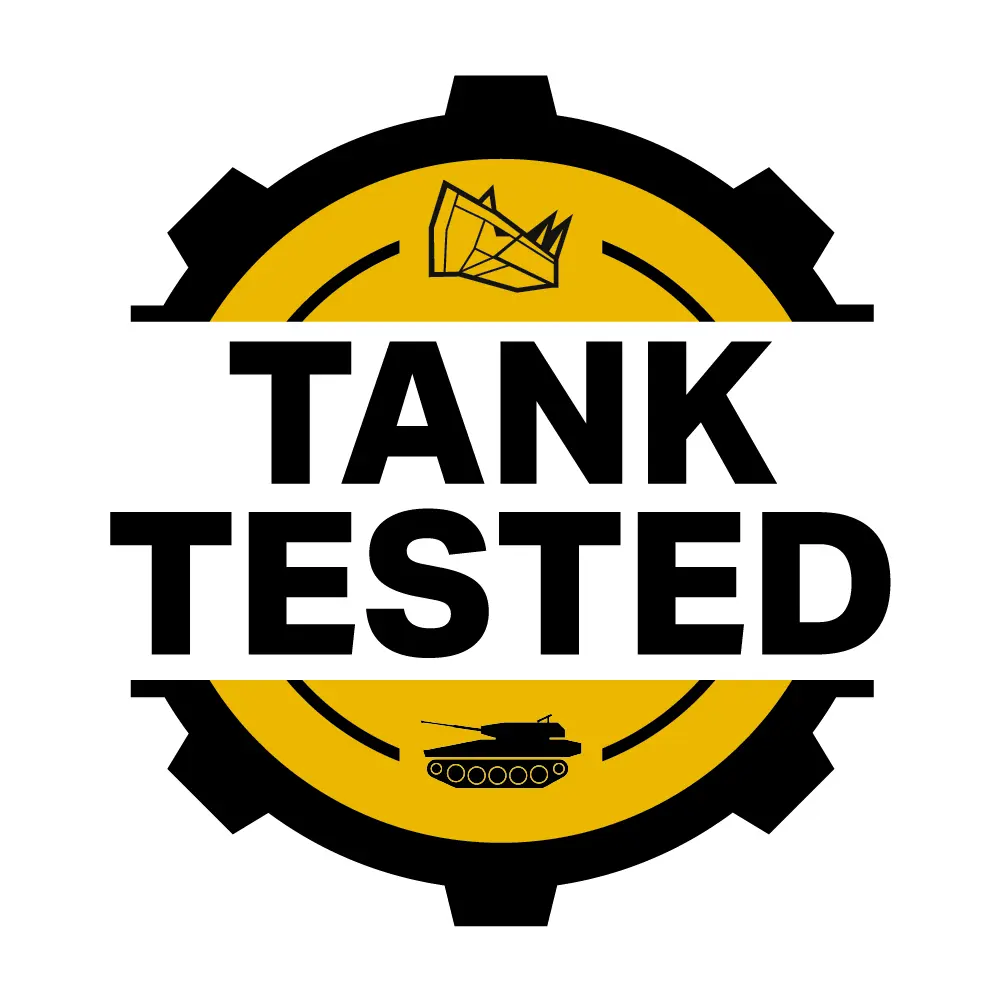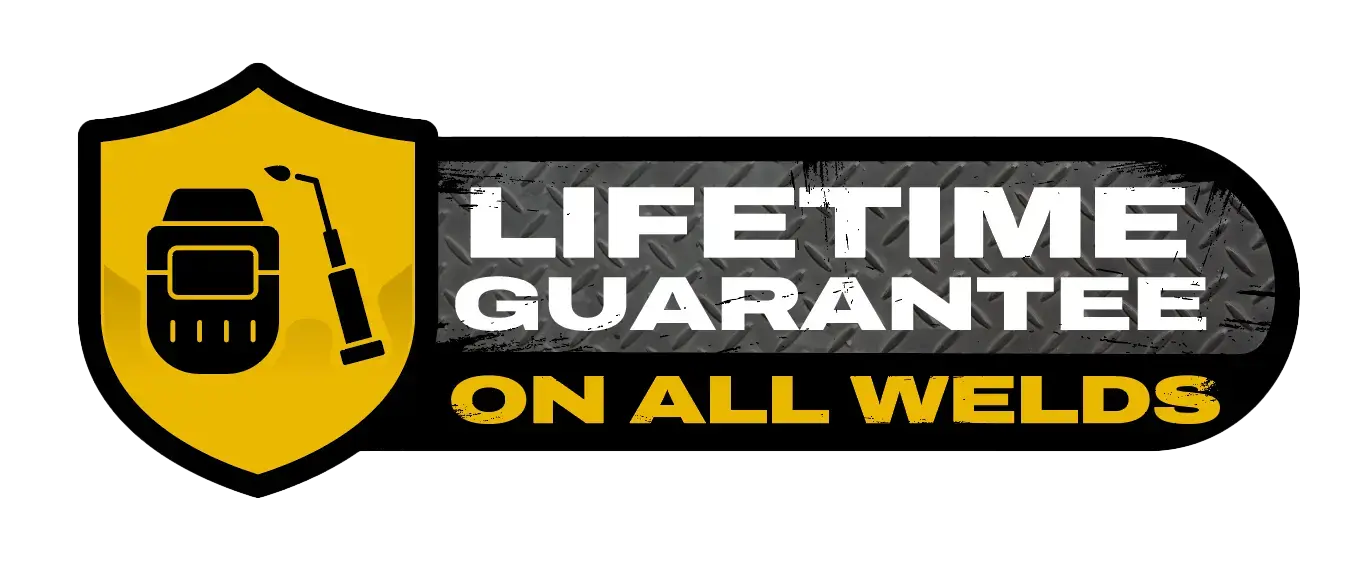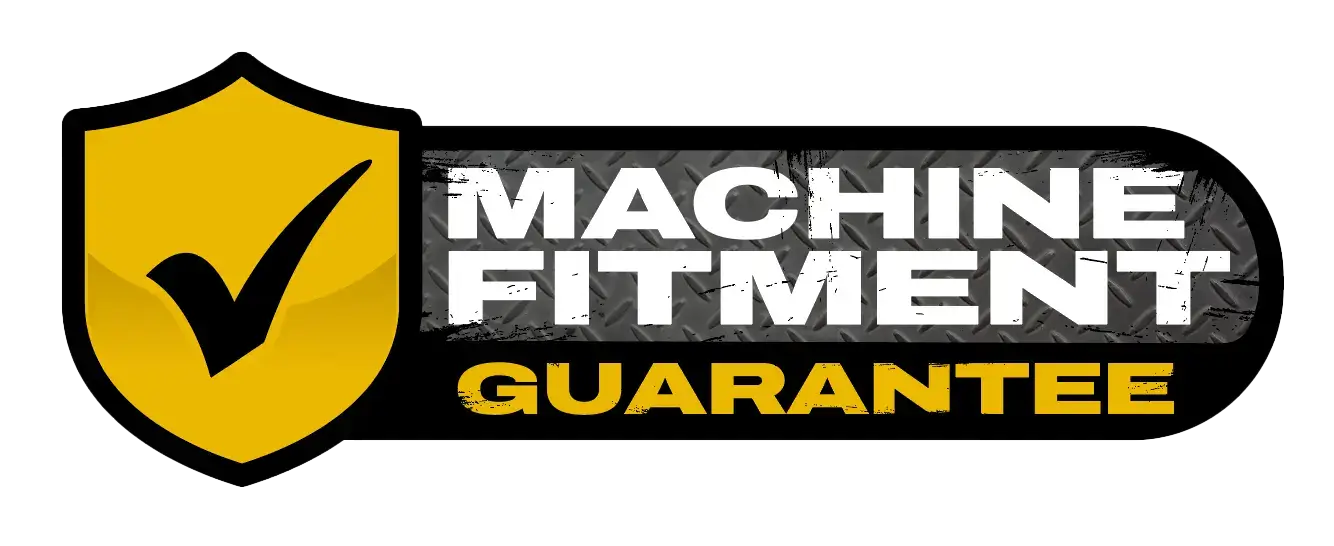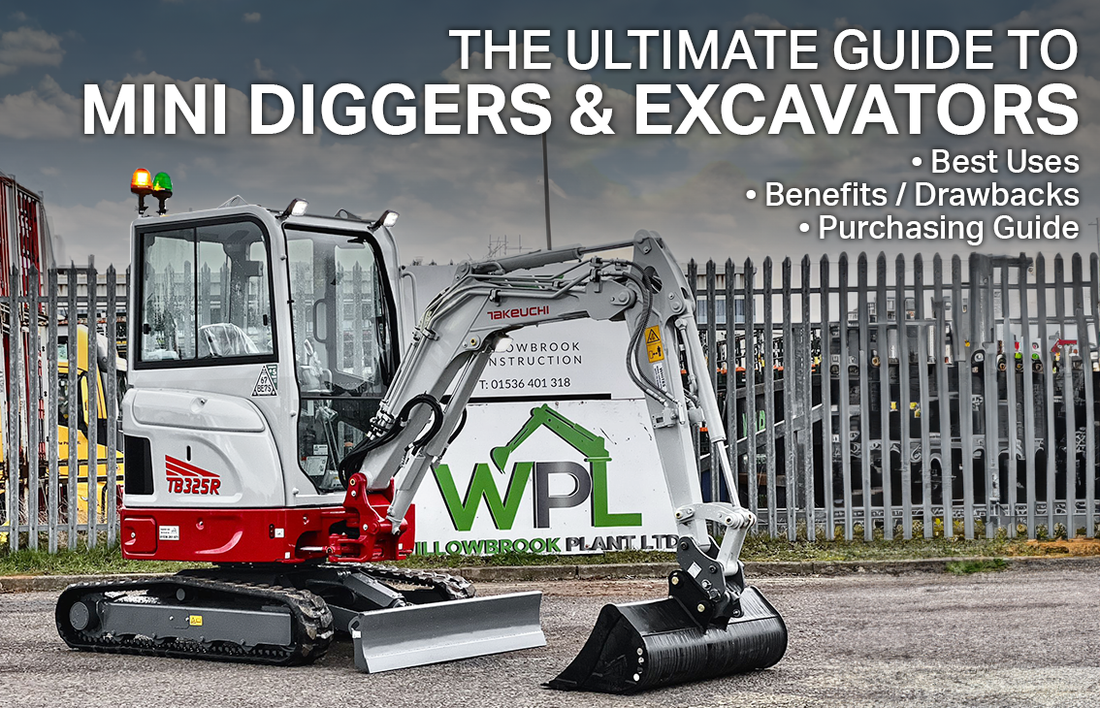
Ultimate Guide to Mini Diggers & Excavators
In an ever-changing world of construction and landscaping, mini diggers and excavators shine as adaptable machines across a range of tasks. Whether it's digging narrow trenches, bulk moving heavy materials or heaving pour concrete for foundations, these machines are essential across a whole range of diverse industries. In this guide, we will discuss what an excavator is and their optimal uses, comparing them with a backhoe loader, explore attachment options and offer essential tips for purchasing a digger of your own. Join us as we help you determine if a mini digger or excavator is the ideal fit for your needs!
What is an Excavator?
An excavator, or digger as they're also commonly known, is a powerful piece of construction equipment designed for digging and earthmoving tasks. It typically consists of a boom, dipper (or stick), excavator bucket and a rotating cab mounted on tracks or wheels. They are available in various sizes, from compact models suitable for urban construction to larger machines used in mining and large-scale infrastructure projects.
What is an Excavator Used for?
Mini diggers and excavators are versatile machines capable of performing a wide range of tasks, including digging trenches, demolishing structures, lifting heavy materials and grading landscapes.

Construction Projects
Excavators are essential for digging foundations, trenches and utility lines, as well as for site grading and levelling. Mini diggers are particularly useful in urban environments where space is limited and precise digging is necessary.
Demolition Projects
Excavators are ideal for demolishing structures such as buildings, bridges and roads. The powerful arms can be paired with an attachment like a ripper tooth or hydraulic breaker to remove concrete, steel and other materials efficiently.
Landscaping and Earthmoving
Excavators are ideal for shaping terrain, clearing land and creating features such as ponds, ditches and berms. They can also be used for land reclamation and erosion control projects.
Material Handling
Excavators are used for loading and unloading trucks, moving bulk materials such as soil, gravel, and rocks, and placing heavy objects with precision. They are commonly used in construction sites and quarries for these tasks.
Utility and Infrastructure Maintenance
Excavators are used for digging trenches for pipelines, laying cables and installing drainage systems. The ability for mini excavators to work in tight spaces and navigate rough terrain makes them essential for infrastructure maintenance projects.
Attachments for an Excavator
Excavators can be outfitted with a diverse array of attachments, greatly enhancing their versatility and adaptability to different tasks.
- Standard digging and grading buckets - ideal for general digging and bulk moving jobs.
- Landscaping attachments like rake riddle buckets - ideal for site clearance, ground preparation and general maintenance tasks.
- Ripper teeth - ideal for breaking up solid and frozen ground, as well as uprooting stuck objects and concrete slabs from the ground.
- Pallet forks - ideal for unloading and moving pallets of material, as well as haybales and stillages around yards.
- Augers - ideal for drilling holes through materials like dirt and gravel, ready for fence posts and similar.
- Hydraulic hammers & breakers - ideal for demolition projects to break up solid materials like rock and concrete.
Benefits and Drawbacks of an Excavator
Benefits of an Excavator
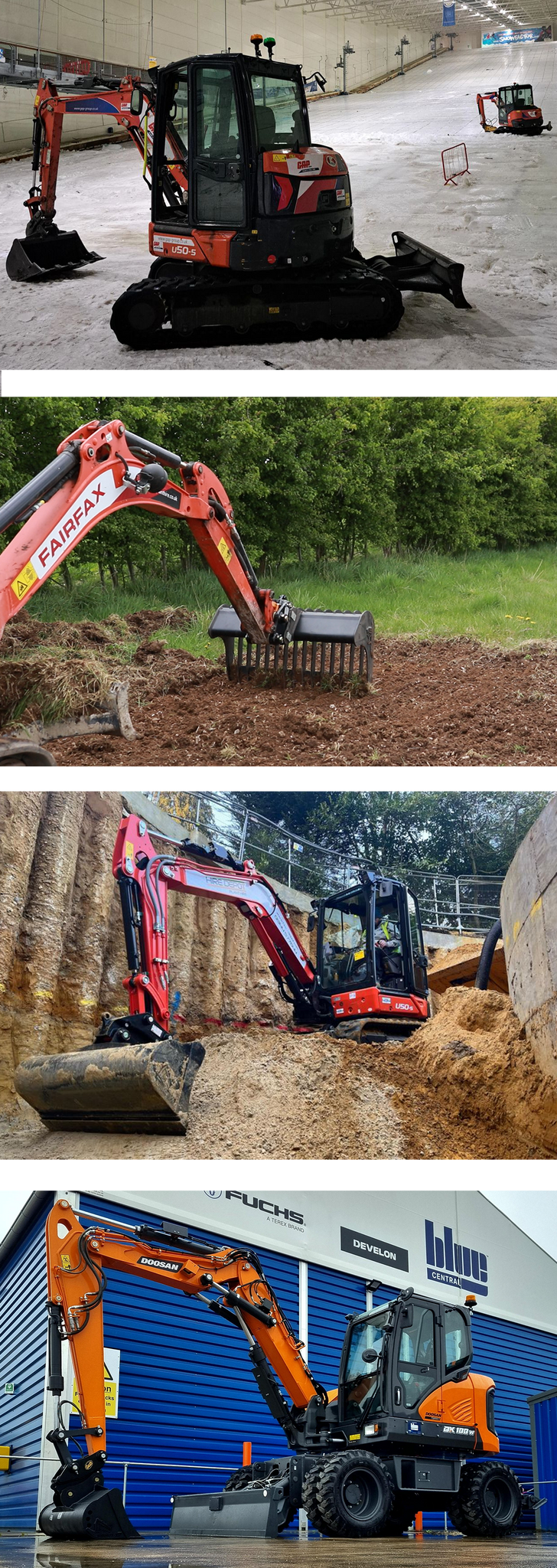
Versatility
Mini diggers and excavators are incredibly versatile machines capable of performing a wide range of tasks, from digging and earthmoving to demolition and material handling. Their compatibility with a wide range of attachments make them indispensable in diverse environments, helping to reduce labour costs and increase productivity.
Precision
Excavators are equipped with advanced controls and attachments that allow for precise digging, grading and material placement. Not only does this ensure accuracy and quality in various applications but it also ensures optimal safety when in operation.
Accessibility
Diggers are purposefully designed to excel across a range of diverse environments, embracing the challenges of confined spaces, navigating through rough and uneven terrains with ease and integrating into urban landscapes, providing access to areas that may be inaccessible to other machinery.
Drawbacks of an Excavator
Maintenance
Excavators require regular maintenance and servicing to ensure optimal performance and longevity. Any interruptions due to unscheduled downtime for repairs or maintenance not only disrupt project schedules but also increase costs.
Tracks VS Wheels on an Excavator
Tracked and wheeled excavators offer distinct advantages and are suited to different applications. Tracked excavators excel in manoeuvring rough terrain and maintaining stability on uneven surfaces, making them ideal for off-road projects like steep slopes and navigating through mud or snow. Wheeled excavators are renowned for their agility and speed on smoother surfaces like highways and urban environments. They're preferred for tasks requiring frequent relocation due to their faster travel speeds.
Excavator VS Backhoe Loader
Although both backhoe loaders and excavators serve purposes in excavation and material handling projects, they vary in their design and abilities. Backhoe loaders provide enhanced versatility by integrating front loader and excavator features, allowing them to tackle a broader spectrum of tasks across different settings. Conversely, excavators are typically preferred for their proficiency in deeper digging and reaching greater heights, rendering them well-suited for extensive excavation endeavours.
What to Consider When Buying an Excavator?
If you're looking to invest or hire a mini digger or excavator, it's crucial to consider several key factors before making the decision on which make and model is best for you. Diggers vary massively in size and power, with differences in attachment compatibility and maintenance. Here's a rundown of what you should keep in mind when searching for your ideal excavator:
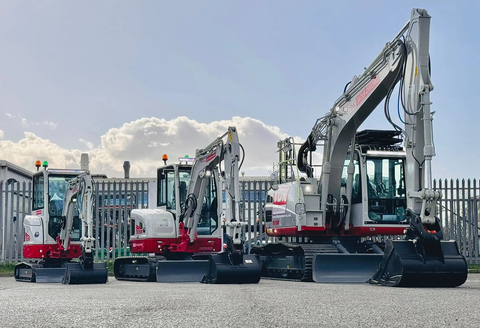
Size and Weight
Mini diggers and excavators come in different sizes and weight classes, ranging from compact models (0.75 tons) to larger machines (100 tons). Choose a size and weight class that can manoeuvre through your work site comfortably while providing sufficient power and reach for your tasks.
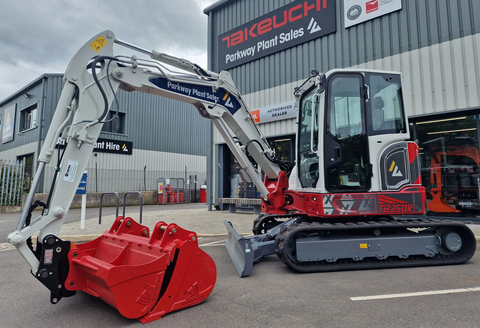
Power and Performance
Mini diggers and excavators are available in diesel, gasoline and electric models. Diesel-powered machines offer high torque and are suitable for heavy-duty tasks, while electric models are more environmentally friendly and ideal for indoor or urban projects with noise restrictions.
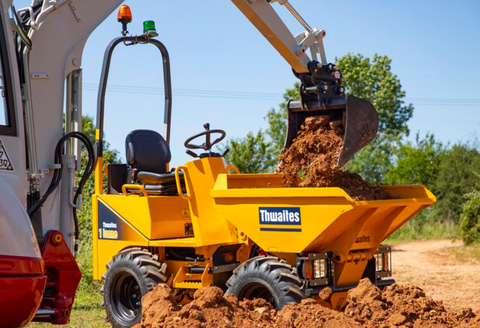
Digging Depth and Reach
Evaluate the required digging depth and reach for your projects. Mini diggers and excavators vary in their capabilities, so ensure the machine you choose can access the depths needed without compromising stability or safety. A 1.5 ton mini digger will dig to around 2,310 mm, compared to a 25 ton excavator that can dig to around 6,755 mm.
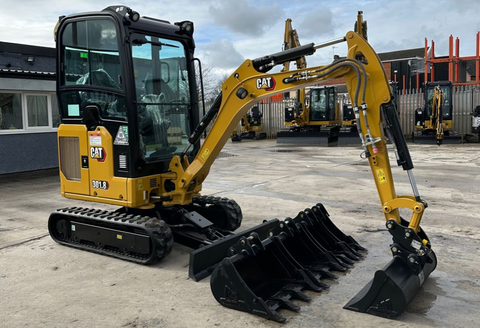
Safety Features and Operator Comfort
Prioritise features like the design of the cab, visibility and safety mechanisms. A productive operator is one who feels comfortable and secure. Seek features like a cab design optimised for ergonomics to minimise operator fatigue during extended work periods, outstanding visibility for navigating confined areas and cutting-edge safety systems to avert accidents while operating.

Attachment Compatibility
Verify attachment compatibility with your desired excavator buckets and attachments to ensure maximum productivity. Excavators are renowned for their adaptability due to the vast variety of attachments available on the market, from standard excavator buckets, to land rakes, hydraulic breakers and other implements.

Maintenance and Support
Evaluate manufacturer reputation, warranty terms and accessibility of parts and service. Even the most dependable excavators require maintenance and occasional repairs. Take into account the manufacturer's track record for reliability, the scope of warranty protection provided, the accessibility of spare parts and the dependability of service support to ensure consistent performance of your equipment over time.
Rhinox Mini Digger & Excavator Buckets & Attachments
Rhinox offer a whole range of mini digger and excavator buckets and attachments, from standard digging and grading buckets to rake riddle buckets and grading beams to ripper teeth and tilt grading buckets. You can shop our product ranges online today, try our Search by Machine Make and Model tool at the top of the page. If you would like some assistance determining what buckets and attachments fit your machine or what attachment is best for your project, get in touch or check out our posts below for further information.
Learn more with Rhinox:
 |
 |
 |
